UP TO THE MINUTE
It’s time to switch metal coil suppliers
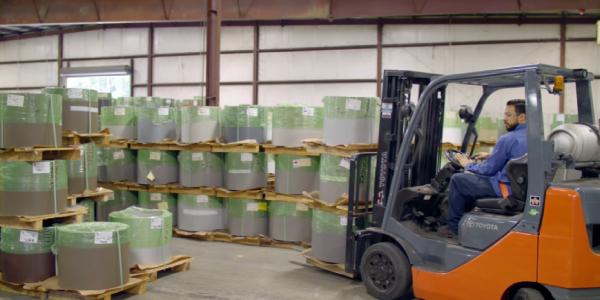
By Sheffield Metals.
Six signs that it might be time to consider changing metal coil suppliers in order to boost your business.
Having a reliable and trustworthy metal coil supplier is critical to your business’s success. Making sure that you’re getting the most out of your partnership with your supplier can be the difference between boosting your own company’s profits and staying stagnant in growth! Do you know the signs of when it might be time to consider finding a new supplier versus staying with your current one?
Sheffield Metals is a leader in distributing metal coils and sheets for the standing seam metal roofing and wall system market. Over the years, we’ve partnered with hundreds of businesses to supply the metal they need to manufacture and install metal roofing systems. So, we know how important it is to ensure that your supplier partnership is in a good place. Because if it’s not, it could be detrimental to your business, your customers and you.
In this article, we’re going to talk about the six most common reasons that indicate it might be time to switch your metal sheet and coil supplier.
Reason 1: Your business has outgrown your current coil supplier’s capabilities.
The most common reason for a contractor or manufacturer to switch the company they buy from is that their business has outgrown its supplier’s capabilities.
Outgrowing the offered products and services can take many different forms. Here’s a list of some common ways this can occur:
- You are looking to install more commercial or architectural projects — Some metal suppliers only offer thinner gauge materials, corrugated or exposed fastener profiles or lower quality products/panels commonly used for agricultural (sometimes called “AG panel”) and residential structures. Most commercial and architectural projects call for a 24-gauge or thicker metal, an engineered profile system and mid-to-higher quality products.
- You need engineered panel profile options — Many different profiles exist for customers to choose from, including mechanical lock, snap-lock, fastener flange, exposed fastener, corrugated, batten and more. Depending on the building type you install, you might need to use engineered profiles that adhere to strict industry standards and are tested to perform in extreme weather. Some suppliers don’t offer engineering on their profiles, which is a common reason businesses switch suppliers.
- An engineered panel profile is half the battle; you also need to make sure that the material you are using can meet engineering requirements as well. Most engineering requires the use of steel that has a minimum 50,000 KSI yield strength for that engineering to be valid. If you have an engineered project and your supplier does not meet that with their materials, the contractor is at risk and potentially liable for allowing a product that cannot meet the project requirements. This should be of particular concern to contractors/manufacturers who have their own engineering and buy material that will need to comply with their testing.
- You want to add weathertight warranties to your capabilities — A weathertight warranty (WTW) is a guarantee from the installer and roofing manufacturer/supplier that the roof installed on a commercial structure will remain weathertight for the duration of the warranty. Few suppliers offer weathertight warranties, so if you want to add this option, it might mean that you have to switch suppliers. Keep in mind that manufacturers typically require you to install their metal in addition to their recommended accessories on WTW projects.
- You want more color options or custom colors — Many suppliers offer similar colors and finishes. However, some suppliers offer a wider variety of colors, the opportunity to order custom colors, and color matching. So, if you think any of these options would benefit your business, it’s a valid reason to consider switching suppliers.
- You need your products to be customized — Some suppliers only offer specific standard widths and lengths on the material they supply. If you often find yourself with wasted metal, some suppliers provide complementary cut-to-length, slitting and other processing services.
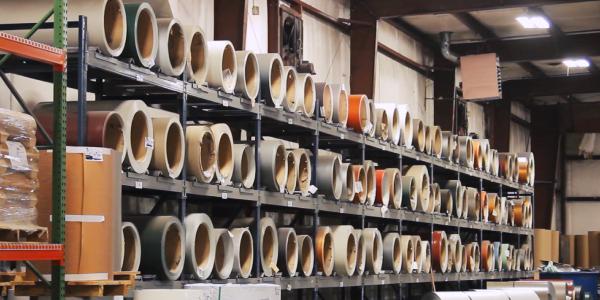
- You want a more one-stop shopping experience – The ability to buy everything you need to install a metal roof or wall system from just one supplier is a game-changer. Not only does it save time buying from several different suppliers, but some companies offer a discount on accessories and other components when purchased with your coils or sheets.
- You need to purchase or upgrade your rollforming equipment — Going along with the one-stop shopping experience is the need to buy or upgrade your rollforming equipment and have the training/support for the machine. Several coil suppliers distribute rollforming machinery and can help you choose the best machine configuration.
- You need technical and architectural support — Once you start installing commercial or architectural projects, you’ll want to ensure that your metal coil supplier offers technical and architectural support. We’ll discuss this more in reason #4.
Reason 2: The products are low-quality, or the quality has decreased.
Another explanation for switching coil supplies revolves around the quality of products. Metal roofing is often specified and purchased because it’s designed to last for several decades and holds up well in extreme weather environments.
However, if you’re buying low-cost metal, which is often made with lower-quality materials, you run the risk of issues developing in the long and short run. Such issues can include premature failure, forming difficulties, lack of warranties and more. While this affects your customers directly, problems that stem from low-quality materials also reflect poorly on your business.
If you find that your material is low-quality or has significantly decreased in quality over time, it might be time to switch suppliers. Here is some background information on metal sheet and coil quality and some of the variations and reasons why material might be low-quality:
- The paint system — A low-cost coil might have a cheap or low-quality paint system coating the metal. The paint quality relies on the resin type, which affects the longevity of the color and overall system performance:
- Higher quality paint system (best) — PVDF (Polyvinylidene Fluoride)
- Mid-quality paint system (better) — SMP (Silicone-Modified Polyester)
- Lower quality paint systems (good) — Fluoroethylene Vinyl Ether (FEVE), Plastisol and Polyester
- Learn more about these paint systems here.
- You should also ensure the paint system is from a reputable paint supplier, such as Sherwin-Williams.
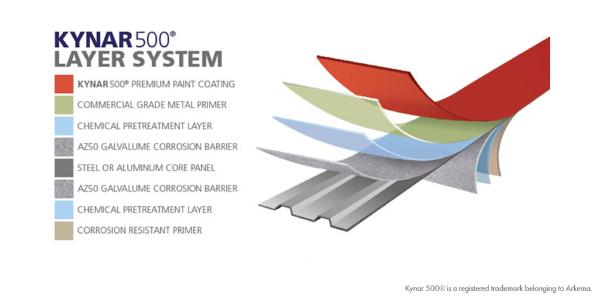
- The paint system warranty — On top of the type of resin used, you can learn a lot about a company’s materials by the paint warranties they offer (or don’t) on their products. Make sure that you pay attention to:
- Warranty length — A shorter time that a product is warranted could indicate a lower quality paint system.
- Inclusions and exclusions — Always look at what is covered and not covered by reading the warranty’s fine print.
- An increase in paint warranty claims — While some paint warranty claims aren’t a manufacturer’s defect, any consistent increase in claims could point to a decline in quality.
- The metal substrate — The metal substrate that makes up the core of the material can also be low-quality, which can lead to a whole host of problems. For example, inadequate material includes:
- Non-mill certified or unverified metal makeup (i.e., steel, aluminum, etc.).
- Metal intended for use on exposed fastener roof systems, gutters, agricultural applications, etc.
- Metal that is imported or difficult to track the original manufacturing source.
- Metal that is not Grade 50. Any metal within the 50 to 65 KSI range allows for the rigidity and tight bends needed for engineered standing seam metal roofing.
- Any sheet and coil products that use the paint system to meet the minimum advertised thickness or gauge.
- Other miscellaneous issues that affect the quality — In addition to the metal and paint system, there are different situations related to quality that might trigger you to switch coil suppliers, including:
- Consistent damage during shipping and freight
- Poor packaging
- Scratched or scuffed products
- Incorrect qualities and sizing
- Color discrepancies, including chalking and fading
- Inadequate or inconsistent coil widths
Reason 3: You have inadequate sales or account support.
The next reason it might be time to switch coil suppliers is that you have inadequate sales or account support at your current supplier.
Having a representative at your material supplier who is helpful, responsive, thorough and knowledgeable makes all of the difference for your business. Not only do they ensure you get the products you need on time, but they also assist you in growing your business.

Take a moment to think about the relationship you have with your account representative. If you’re experiencing any of the following issues, it might be worth either having a conversation with your supplier or even consider switching suppliers:
- You don’t feel like your business is a priority to your current supplier.
- Your account rep is unresponsive, uneducated, unhelpful or just not reliable.
- Your representative doesn’t know the answer to a technical question and cannot connect you with someone who can help you.
- You don’t have a backup contact to reach if your primary contact is unavailable.
- Your account representative or primary contacts are frequently changing.
- Your representative consistently recommends the incorrect metal, profiles, etc., for your specific project requirements.
- You have an overall poor relationship with your account rep.
Fabricating and installing standing seam metal roofing can be very technical and complex. Even the most experienced industry professionals come across projects where they need technical or architectural assistance in one way or another.
Reason 4: Your current supplier doesn’t offer technical or architectural support.
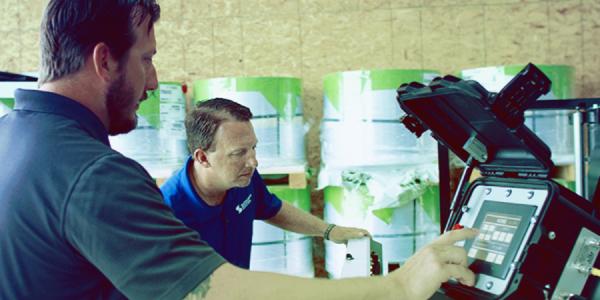
That’s why some suppliers have dedicated technical and architectural departments who can help their customers with complicated project topics, including:
- Panel profile testing and engineering
- Installation details
- Installation methods and best practices
- Warranty inspections and support
- This is especially true if you currently install or are looking to start installing weathertight warranty projects, as they are larger and require specific products and engineering.
- Assistance with architectural project bidding (i.e., side-by-sides for product substitutions)
- Rollforming equipment training
For reference, we’ve emphasized engineering and architecturally driven projects at Sheffield Metals, so we added a dedicated full-time Technical Department and Architectural Department. These two teams are made up of individuals who have worked in their respective fields and understand the ins and outs of technical standing seam metal roofing.
If your current supplier cannot assist you with your technical questions or is unable to connect you with a technical representative, it might be worth switching.
Reason 5: There’s a lack of value-added services offered by your coil supplier.
Complementary services that add value to your partnership are significant, especially when it makes you and your business more efficient. The last thing you want as a contractor or manufacturer is to have little to no support from your product supplier. You’re their customer, and your business should be seen as important.
So, what do we mean by services that you could have access to as a customer of a supplier? It could include:
- Custom coil processing
- Slitting, cut-to-length, strippable PVC application, re-rolling, etc.
- Complementary take-off estimating services
- Free access to a roof and wall color visualization tool
- Easily accessible engineering documents or software
- Warranty options from reputable manufacturers
- Design and architectural assistance
- Educational and training resources for you and your employees
- Marketing support
- Social media features, customized color cards, brochures, etc.
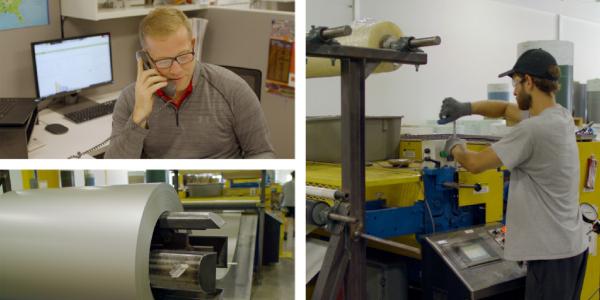
It may be worth having a conversation with your current supplier to determine if there are any services available that you aren’t using. From there, you can decide to take advantage of any of the ones they offer. Or, if your supplier doesn’t provide any valuable services that you could utilize, you might consider switching companies.
Reason 6: Prices or lead times are changing without any notification or justification.
The final reason it might be time to switch metal sheet and coil suppliers is that prices or lead times increase without any communication or notice.
Price increases come with the territory as the overall economy shifts over time. For example, some domestic and foreign steel and aluminum markets are still experiencing supply challenges into 2022. For reference, the 2021 steel/aluminum deficit led to higher prices, unavailable products, and longer lead times. However, the actual price or lead time changes are often not the problems; it’s more related to the lack of transparency and advanced notice from your supplier.
Your supplier should contact you as much in advance as possible and explain exactly when and why a price or lead time change is coming. Doing so not only gives you the peace of mind that your representative is looking out for you, but you also come to trust them more to do what is best for your business.
If prices or lead times continue changing and you aren’t getting a clear explanation of why, different suppliers are better at communicating such information.
Final thoughts on the reasons it might be time to switch coil suppliers
So, should you switch your metal coil or sheet supplier? Well, it depends on your specific situation.
To get you started down the path of assessing what is best for your business, you’ll want to ask yourself a few questions. We recently published a comprehensive article containing a full list of questions to ask as you navigate switching suppliers, but these will help you get started:
- Are you satisfied with the metal products that you currently purchase?
- Would you consider your current supplier to be trustworthy and transparent?
- Does your supplier stock the materials, sizes, colors, etc. that you need when you need them?
- Do you install engineered standing seam profiles? Does your supplier offer engineering?
- Do you want to expand into larger commercial or architectural projects in the near or distant future?
- How does your current coil supplier assist with your business’s growth?
- How do you want your coil supplier to support you and your business going forward?
Our primary goal at Sheffield Metals is to assist you in growing your manufacturing or contracting business. We do this by supplying you with the high-quality products you need to install and fabricate standing seam metal panel systems, as well as the engineering, support, and tools that will take your business to the next level.
Looking to switch to a reputable coil supplier? Contact one of our helpful roofing specialists today to discuss how Sheffield Metals can help your business succeed!
Original article and image source: Sheffield Metals
Learn more about Sheffield Metals International in their Coffee Shop DIrecotry or visit www.sheffieldmetals.com.



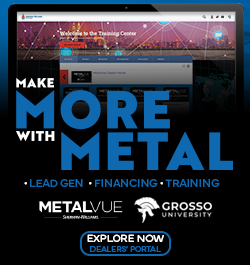










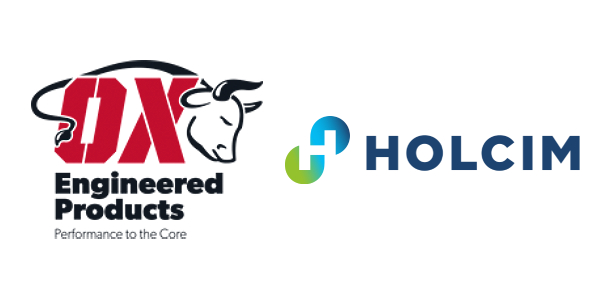




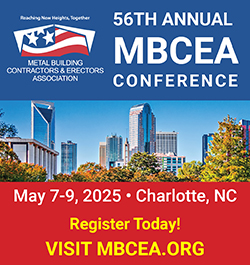
Comments
Leave a Reply
Have an account? Login to leave a comment!
Sign In